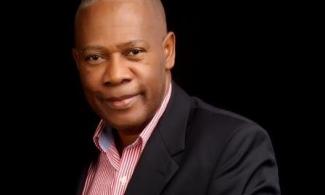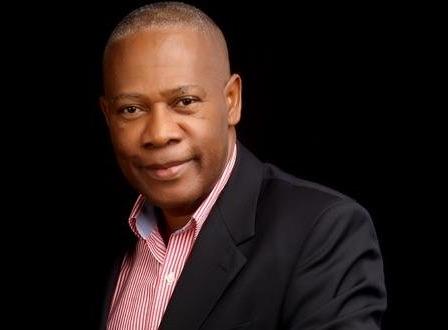
My name is Michael and so I imagine you would think I am Christian and, therefore, likely to be harmless. Wrong. Nice man? Wrong again.
My name is Michael and so I imagine you would think I am Christian and, therefore, likely to be harmless. Wrong. Nice man? Wrong again. Terrorist? Not likely but wrong again, not if I were Irish and I lived in Northern Ireland before 1997. In today’s world, more than at any time in our collective history as humans, people are profiled by their looks, name, and religion. If you are black, even if you are just 12 years old and carrying a toy gun in the wrong part of town in America, you are very likely going to be mowed down by a white police officer because some white folks feel threatened by your blackness.

In Nigeria, if you are Hausa, everyone calls you Malam, whereas, a Malam is a name for a teacher. If you are Yoruba, everyone feels—there he goes, it is just a matter of time before he betrays us. If you are Ibo, you must be selling counterfeit Chinese goods. We are all wrong about everyone and everybody. As 2015 rolls away, it is time for us to take stock and begin to do a rethink.
Clinton reminded voters in Minneapolis earlier this month of Bush's visit to a Muslim center six days after the Sept. 11 attacks. She even quoted his words from that day about those who intimidate Muslim-Americans: "They represent the worst of humankind, and they should be ashamed of that kind of behavior."
Is it possible that we should look at the story of the good Samaritan to take our cue about how not to profile people?
As the story goes, a certain man had been robbed and beaten purple and blue. As he writhed in agony on the ground, he saw a priest coming by. ‘Help me,’ he yelled, but the Priest was in a hurry to minister to a rich man in a city a few miles away. The rich man must not be kept waiting.
Hey poor man, your problem is your problem or as we say here in Nigeria, you are on your own. He moved to the other side of the road and walked on by.
Likewise, a Levite, ( Under Jewish custom, Levites are taken care of by society. They minister in the Temple and they do not have to work) was passing by. When the robbery victim saw him, he breathed a sigh of relief. ‘Finally,’ he said to himself, ‘surely, this man must help me. I pay my tithe and it goes to people like him.’
As the account goes, the Levite was in a hurry. He needed to be somewhere. How could he be bothered by a robbery victim? He did not even take a minute to assess the situation. He just walked on by, again. The robbery victim was losing blood fast. Time was of the essence if he was going to survive. Finally, a most unlikely human being, without pedigree, un-named, without a profession, without history, just another human, saw a fellow human in trouble and he said to himself, ‘this could have been me.’ He did not wait for the victim to ask him for help. He walked towards the victim and asked him, ‘How can I be of assistance? What happened? We need to get you some help very quickly!’
The Samaritan businessman carried the wounded, battered fellow on his ‘Ketekete’ and took him to a place of help and paid all his bills. He left a deposit for them. ‘Give him the best possible care,’ he said. On my return journey, I will stop by to check on him. If you have incurred any more bills, I will pay. ‘
My friends, our shared humanity is more important than what religion we profess and what God or gods we call upon. How do we claim to love God when we cannot love other humans? Islam is not the problem. Humanity is the problem. Only last week in India, a Muslim man was lynched to death by some Hindus for eating beef. There is probably not enough outrage because he is a minority in that region. Some people will no doubt take his problem as their problem and want to retaliate someday soon. Whenever they do so, we would scream Islamic extremism.
Back home, recently, some Shiites were said to be in a religious procession. We have not heard any account that they were armed and dangerous. They are different in the North. They are a minority in the North. Mainstream Islam in the North is of the Sunni persuasion. They should be ignored because they are insignificant. Wrong. This mole hill today can become our mountain tomorrow. Sectarian violence is the worst kind of violence because it is fueled by an ideology that is bigger than food, drinks and money. You cannot pay a Muslim enough money to become a Christian and neither can you pay a Christian enough money to become a Muslim. He must believe to convert except perhaps if he is coerced and has a liitle choice but to survive. As a matter of fact, even ISIS exacts a toll or taxation from people who want to remain Christians in some enclaves they have captured.
The quality of leadership in Nigeria must grow like everything else around us is growing. Our constitution (I do not really agree that we have one) as it was imposed by the Military, guarantees freedom of worship to everyone. The Shiites in Nigeria must be given their space and they must feel secure wherever they chose to express themselves. We need a leadership that thinks and engages the populace. We have a knack for sweeping problems under the carpet. The agitation for a Biafran State has been on for some years. What have various Nigerian governments done about it? They reply with repression because they do not want to do the hard work of thinking through the issues and engaging in dialogue. The agitation for Biafra is not an agitation for geographical Biafra. It is a cry for inclusiveness. Eventually, if this cry is ignored long enough, it will inevitably become geographical. Is it hard to understand this?
It was in the same way that the cry in the Niger Delta was ignored for over 50 years. It took a thinking leader in the mold of a Muslim Umaru Yar’ Adua to resolve it with an amnesty program when for eight years, a Christian Obasanjo replied with guns, more guns, and Odi. Pardon me, but it is, in the same way, I see Boko Haram. It will never be resolved by guns for as long as leaders in the North do not view and treat their people as human beings. There are no factories in the North to hire people. There are no schools in the North to train their children. I see a young man carrying five tubers of yam and racing to sell them in traffic and a tear drops from my eye. He has been condemned to a life without hope, without a pathway out of poverty and you ask him not to accept two thousand Naira to burn down ten houses?